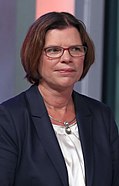| |||||||||||||||||||||||||||||||||||||||||||||||||||||||||||||||||||||||||||||||||||||||||||||||||||||||||||||||||||||||
All 83 seats in the Bürgerschaft of Bremen 42 seats needed for a majority | |||||||||||||||||||||||||||||||||||||||||||||||||||||||||||||||||||||||||||||||||||||||||||||||||||||||||||||||||||||||
|---|---|---|---|---|---|---|---|---|---|---|---|---|---|---|---|---|---|---|---|---|---|---|---|---|---|---|---|---|---|---|---|---|---|---|---|---|---|---|---|---|---|---|---|---|---|---|---|---|---|---|---|---|---|---|---|---|---|---|---|---|---|---|---|---|---|---|---|---|---|---|---|---|---|---|---|---|---|---|---|---|---|---|---|---|---|---|---|---|---|---|---|---|---|---|---|---|---|---|---|---|---|---|---|---|---|---|---|---|---|---|---|---|---|---|---|---|---|---|---|
| Turnout | 1,168,352 (50.2%) | ||||||||||||||||||||||||||||||||||||||||||||||||||||||||||||||||||||||||||||||||||||||||||||||||||||||||||||||||||||||
| |||||||||||||||||||||||||||||||||||||||||||||||||||||||||||||||||||||||||||||||||||||||||||||||||||||||||||||||||||||||
| |||||||||||||||||||||||||||||||||||||||||||||||||||||||||||||||||||||||||||||||||||||||||||||||||||||||||||||||||||||||
The 2015 Bremen state election was held on 10 May 2015 to elect the members of the Bürgerschaft of Bremen, as well as the city councils of Bremen and Bremerhaven.[1] The incumbent government of the Social Democratic Party (SPD) and The Greens retained its majority. However, Mayor and SPD leader Jens Böhrnsen resigned due to his party's poor performance, which was significantly below expectations. He was succeeded by fellow SPD member Carsten Sieling.[2]
Analysts expressed surprise about the low turnout (just 50.1%), the lowest since 1945 in a west German state, and concern about a particularly low turnout in impoverished areas, which was seen as an indication of disillusionment with politics in these demographics.[3]
- ^ "Wahlen". Bremen. Retrieved December 3, 2010.
- ^ "Bremen Mayor Jens Böhrnsen declines returning to chief minister's post". Deutsche Welle. Retrieved May 18, 2015.
- ^ "Ärmere gehen seltener zur Wahl" [The poor participate less often in elections] (in German). Nordwest Zeitung. Retrieved May 18, 2015.






